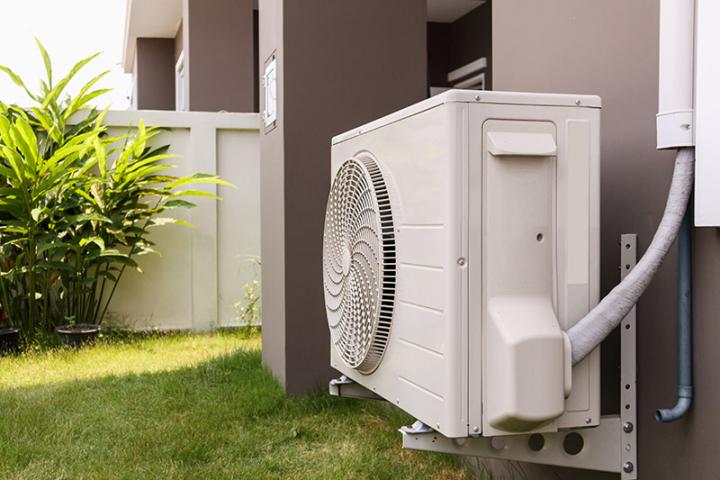Over the winter season, your home’s most highly forgotten system is your AC. After several months of non-use, your AC unit could develop major or minor breakdowns. However, your AC breakdown during winter is solely due to negligence.
Most people think that if their AC was working last summer, it should be excellent after a year. However, even though your area experiences a mild winter season, your AC might develop issues during the break. Thankfully, AC experts like the one at the following link can help fix such problems: https://www.rivervalleyac.com/ac-repair
But this article will divulge the most common causes of AC breakdown during winter. After reading this, you’ll find it easy to protect your AC when not in use during winter.
Common Causes of AC Breakdown in Winter
AC units function a lot in summer, but when winter comes, you’ll need your heater more than the AC system. Unfortunately, some factors can cause your AC to break down when not in use.
Here are the primary causes of AC breakdown during winter.
Vegetation and unwanted growth
During the cold season, vegetation requires very little time to grow. So, a seed dropped around or into your AC unit can germinate and grow fast. However, the growths can suffocate the unit if you try switching it on before a quick check.
Before operating your AC unit after a winter season, you must ensure that it is free from any plants or debris. Also, take a close look at the inside. If you find some weed, tug them gently, or if they are hard to pull, you must contact an expert to help you.

Refrigerant levels
After several months of non-use, you may notice leaks in your AC unit. Contacting a local technician to help check the refrigerant levels is essential.
With the recommended levels, your AC will function properly. However, if the refrigerant levels are low, consider topping it up.
Unwanted visitors
The U.S. Fish and Wildlife Service depicts that during the winter season, even animals, both reptiles and amphibians, look for a place they can call home or die.
The government agency describes that these animals may seek and own shelter in your unit. In addition, small and enormous animals can restrict airflow across the coils of your AC unit.
Perhaps Rover Used it when you didn’t
If your male dog shares the same space as your AC unit, you need to contact an HVAC expert to check on the coils. Metals Samples Company depicts that dog urine contributes to the corrosion of a significant percentage of old AC units.
However, the impact can degenerate during a dry winter when the AC is left to cook in the sun. Most homeowners plant shrubbery or fence around the AC unit to prevent this, going a distance of at least 2 to 3 feet.
Pollen grains
During early spring, the U.S. experiences a lot of pollen, evident when you glance at the cars. If you forget to switch your AC on time, the unit will get covered with gunk. However, this is only a serious problem if your unit is near flowers and trees.
During pollen months, your air filter can catch many allergens, resulting in regular checks and replacements. However, if you ignore it, your AC’s ductwork will get clogged, restricting airflow.
Weed wacker damage
Most homeowners know the importance of keeping their AC system free of clutter and weeds. A weed Wacker is the quickest way to get rid of clutter and weeds.
However, if you have a landscaping company doing it, you may need to check out the control wiring. If you are not careful, your unit could get damaged within a split second.
Thermostat malfunction
The thermostat majorly controls your AC unit. After a long winter period of not using your AC unit, you may need to check on the batteries where applicable. Ensure your AC’s thermostat is switched on and set to cooling mode.
Dirty condenser coils
Your AC condenser coils get located on the outer part of your home on the AC unit. Because of the location and the cold during winter, they can collect seasonal debris and dirt. However, allowing much dirt and debris to build up on the coils could increase utility bills.
Thus even as you get coiled up in your house during winter, spare some time and clean off the condenser coils. You can clean using a water hose, or if there is an extreme build-up of dirt, you can contact an HVAC professional to clean using chemicals.
Clogged drainage line
After months of not using your AC, dirt, lint, and dust can clog your drainage line. If it becomes clogged, the drain pan will get filled up, resulting in leakage and potentially damaging your AC unit and furnace. Consequently, the water leaking can also cause damage to other things surrounding your unit.
How do you prevent your AC from breaking down during winter?
So far, you know the causes of an AC unit’s breakdown during winter. But it’s equally important to have a quick glimpse of what to do to prevent your AC from breaking down during winter.

Check your air filter
How often do you check on the air filter? You should check your air filter regularly to ensure no dirt and debris have accumulated.
If your AC unit gets clogged up with dirt, it will contaminate the air you breathe and force your unit to work harder than expected.
The National Library of Medicine ascertains that clogged filters trigger many chronic diseases, such as asthma.
Keep outside exhaust vents clear
Your AC’s outside vents, chimneys, and intake valves should always be clear as they are susceptible to ice and snow build-up.
When snow or ice builds up, it may cause exhaust blockage, resulting in your furnace not working correctly.
In the worst-case scenario, the U.S. department of health warns that carbon monoxide can build up, posing severe health conditions to your family.
Move items away from your furnace or heat pump
If you’re used to keeping items such as boxes and other messes in your basement, it could quickly draw warm air making your AC work extremely hard to distribute warmth in your home.
Clearing all the litter and moving them away will ensure that your AC’s furnace works as expected during summer.
Takeaway
After reviewing the common causes of AC issues during winter, you should avoid everything discussed above to ensure your AC functions properly. That’s because AC breakdowns during winter are often purported as expensive and tedious as you try to repair or replace the damaged parts. So why don’t you avoid these damages and save yourself some money during the current economic turmoil?






